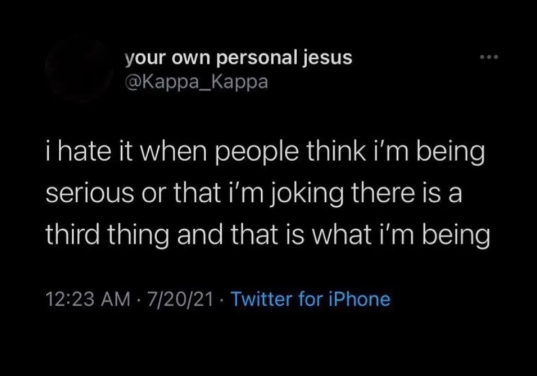
Someone in a video I watched was talking about blockbuster movies, and they said, “They’re the most popular movies in the world. Why can’t they also be good?”
I wonder if there’s something about popularity that precludes “goodness.” And to be honest, I’m sure this is a very well thought-about question with many answers, but I want to kick the ball around and find some answer of my own.
“Good” is the vaguest thing you can say about an artwork, but in this case I think that’s a strength. It’s by design. The most boring thing to say here would be that art is confronting, and what is popular cannot be confronting, and therefore it cannot be of great aesthetic quality. But that’s not what we mean when we talk about a “good movie.” I like John Wick, but I don’t know that it does anything complex. It’s good, I would argue, because it isn’t complex. It fulfils that campfire story itch in an unsurprising but satisfying way — low blows notwithstanding — and does whatever an action movie needs to do to be enjoyable.
One line I draw here is the difference between art and craft. John Wick is art in that it’s an art form (movies), but it’s not “film” in the Letterboxd sense. I still haven’t found a good delineation — “high culture” and “low culture” is a poor distinction in my opinion, and for that matter lots of arty art also has mass appeal. Everything Everywhere All At Once killed it in the box office. For now let’s just say, John Wick does not have a strong rhetorical message that it’s trying to convey.
But the craft of the movie is spot on. The dialogue is well-written (if melodramatic in some ways), the scenes well-blocked, the acting well-acted. There’s nothing to distract you from your enjoyment of the movie. Compare with big budget projects, in which constant shifts in mission and demand may ultimately lead to a rushed product. The Marvel VFX problem. I feel like this happens especially with video games and TV.
Another sense in which a big artwork can fail to hit “good,” comes from the same problem: design by committee. I think audiences have an instinctive sense for vision, and we can tell when an artist’s vision has been smudged by too many hands. Or if “vision” is too flighty of a word, say “opinions.” Whatever you want to say about the vision of John Wick, it’s clear everyone on that production had opinions about what action movies should be like. Any choice is better than no choice. I’ll link my Scream VI review again, because although I liked that movie, I point out that one of its big flaws is that it has no opinions. In the end, it just makes itself about family. I said any choice is better than no choice, but the “default to family” thing is no choice.
It also explains popularity, since it gives some films access to more heavily censored markets than a movie about, say, anti-capitalism.
So, what makes an artwork good? Craft and opinions. A project with too much weight behind it passes too many hands to keep either of those things.
Are craft and opinion all that make an artwork good? No, but I would love to find an example of a well-crafted, clear-sighted movie that’s bad. Off the top of my head, There Will Be Blood was kinda like that for me, except I would never call it a “bad movie.” Just wasn’t for me.
Oh, and it can’t be about hate. I guess that’s the big one, huh?




